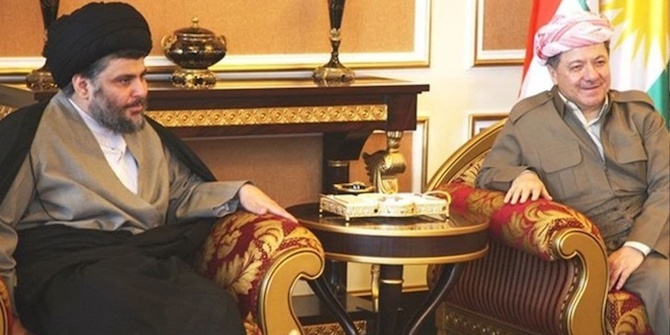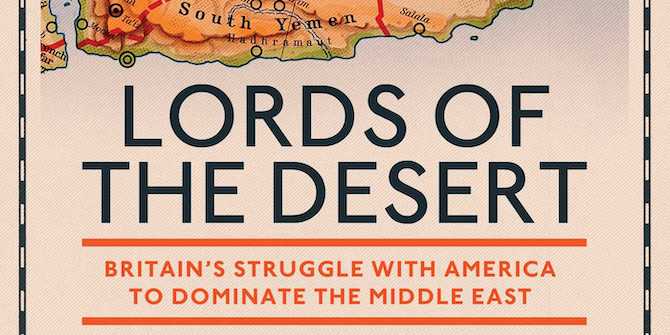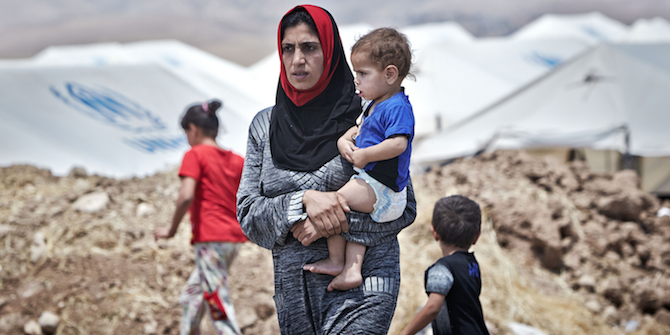by Raad Alkadiri

Disputed results, rival claims, missed constitutional deadlines, drawn-out political negotiations. There is a sense of déjà vu all over again to Iraq’s latest elections. The almost four months since the 10 October 2021 national vote have been characterised by growing political discord as rival factions have disputed the outcome of the poll and argued over which of them has the legitimate mandate to select the country’s new slate of political leaders.
But what is going on in Iraq is not just post-elections business as usual, a divvying up of the spoils among the country’s political oligarchs. Fundamental changes in the country’s power-sharing formula are being proposed that would would sweep away the big-tent consensus arrangement that has governed Iraqi politics since regime change in 2003 and replace it with a majority government where power was consolidated among a much smaller number of factions. Ethno-sectarian formulas would be preserved, but, for the first time, many of Iraq’s mainstream parties would be forced into opposition, left looking in from the outside and scurrying to protect their interests.
Given the gross maladministration and corruption that has has been the hallmark of successive Iraqi governments, including the outgoing, many would argue that a shift is no bad thing. There is little doubt that the country would benefit from wholesale economic and political reform. But the current machinations are not about systemic change to improve Iraqi governance; they are a power play, largely driven by two men both of whom sees themselves as heirs to their own decades-long political mission that could finally be brought to fruition: Muqtada al-Sadr and Masoud Barzani.
Sadr, the former enfant terrible of Iraqi politics, has been waiting for this moment since 2003. Excluded from the group of leaders that the United States chose to lead Iraq after Saddam’s fall, and subsequently brought to heal — temporarily at least — by Nouri al-Maliki’s government in 2008, Sadr has regrouped and reinvented himself as the voice of popular opposition in Iraq, advocating a nationally oriented, issue-based politics that seeks — rhetorically at least — to hold Iraq’s kleptocratic and self-interested political oligarchy to account. From camping outside of the gates of the Green Zone in protest in 2016 to claiming leadership of the mass protest movement after October 2019, Sadr has burnished his image as a maverick voice for change.
But Sadr’s goal has never been reform; it has been power. He wants to push aside rival oligarchs to become the ultimate Shia power in Iraq, and, by extension, the unchallenged arbiter of Iraqi politics, which he believes is his rightful position as inheritor of his murdered-father’s legacy. Working in part through a weak and pliant prime minister who has been only too happy to accept his diktats over the past 18 months, Sadr has already been able to capture large swathes of the Iraqi civilian ‘deep-state’ at his rivals’ expense. With those building blocks in place, Sadr is now looking to take advantage of his party’s position as the largest single faction in parliament to complete his takeover, extending it to the security sector, and placing himself — undisputed — at the pinnacle of Iraqi politics.
But the Sadrists’ 73 seats are not enough to act independently in the 329-member parliament. Enter Barzani, who has recently appeared to see the mercurial Shia cleric as precisely the powerful ally he needs to achieve his own ambitions in Kurdistan.
There are those who suspect that Barzani has never given up on fulfilling the dream of Kurdish independence and of restoring once and for all his Kurdistan Democratic Party (KDP)’s undisputed power and authority in Kurdistan. He may see now as the opportunity to take decisive steps in both directions.
In the early years after 2003, Barzani and other Kurdish leaders saw the dominant Shia parties in Baghdad as their route to eventual secession, as they jointly pushed a confederal ‘league of friendship’ constitutional vision that would have left Arab and Kurdish parts of Iraq to coexist as independent sovereign equals.
But shifts in the locus of political power within the ‘Shia house’ to advocates of a strong federal government dashed early Kurdish hopes. After the ignominy of Baghdad’s refusal to recognise the 2017 Kurdistan independence referendum, and the federal government’s insistence on conditionalising budget disbursements to Erbil, Barzani now appears to see promoting one, all-powerful Shia ‘sultan,’ and dividing the Shia political factions, as the way to achieve his cherished ambitions (beginning with securing revenue sharing on Kurdish terms). And, for the moment, a deal with Sadr fits that bill.
Meanwhile, reinforcing KDP power in Kurdistan means defanging the rival Patriotic Union of Kurdistan (PUK) once and for all, first by sidelining it in national politics, and then by attempting to mop up its power base at home. Hence the KDP challenge for the presidency.
Government-formation negotiations in Baghdad over the next few days and weeks will illustrate just how far each man is willing to go to fulfil his ambitions. Neither has shown much appetite for (or need to) compromise so far, especially active support from a newly energised and united Sunni political leadership, which sees an opportunity to restore its own power in national politics after almost 20 years of being sidelined, has given them significantly more room for manoeuvre. Sadr has thus far eschewed his Shia rivals’ call for a traditional post-2003, all-inclusive government, insisting instead on a majority administration that would exclude parties that do not bend the knee to his authority and agenda.
The KDP has tacked close to Sadr, backing the majority government idea, and voting with Sadrists and the biggest Sunni factions to elect Parliamentary Speaker Mohammed Halbousi, leader of the Sunni Sovereignty Alliance. The KDP is also running its own candidate for Iraqi President, a post that the PUK has traditionally claimed.
That presidency vote, which is scheduled for 7 February 2022, will be the next big indicator of what direction Iraqi politics is going in. Supporters of consensus government are likely to work hard to deny parliament the quorum needed to hold the election if they cannot guarantee the defeat of the KDP candidate, Hoshiyar Zibari. Stalemate, or a victory for the PUK presidential candidate, the incumbent Barham Salih, could force Sadr and Barzani to reconsider their options, and change tack.
But if the KDP does win the presidency without offering any compromises, then neither Sadr nor Barzani will have much incentive to make real concessions when it comes to selecting a prime minister and cabinet formation. The impotence of their political opponents will have been further exposed, and these groups may be left with a simple choice: come on board under the tutelage of and terms set by the Sadrists and the KDP (if they are willing to invite you, at that point), or wallow in opposition until new elections take place.
Neither option will hold much appeal, but which one Sadr’s Shia rivals, in particular, choose will be important for stability in Iraq as long as the new government survives. The Coordination Framework of Shia parties that are Sadr’s adversaries have thus far held firm, insisting that they will only join the government if all factions are offered positions.
Faced with the inevitability of a majority government, this unity may break if some factions — including ones close to militias — choose participation over risking their local economic and political power bases. But they also know that their power still would be dangerously circumscribed, and that their interests and patronage networks, including vital ones in the security services, would be dangerously exposed.
Total exclusion would potentially pose an even bigger — and potentially existential threat — to these parties’ interest. Faced with this challenges, they are likely to take more extreme measures to protect themselves. Resorting to violence would be one option, raising the spectre of a Shia civil war that, once begun, would likely be hard to quell in the absence of external intervention given Sadr’s lack of overwhelming personal forces and the possible fracturing of the Iraqi security services.
Alternatively, the excluded factions could seek to form a political opposition in parliament or boycott the political process altogether. The impact on Iraqi stability would be more benign, but in either case it would amount to political capitulation, with all that that entails, as there would be little to curtail the actions of a determined executive that controls most of the levers of state.
However government formation does play out, one thing appears certain. There is little prospect for any sort of meaningful political or economic reform; both are antithetical to Sadr’s and Barzani’s underlying agendas. The post-election battle that is taking place is not over ideology; it is a naked drive for absolute economic and political power, and the promotion of personal and party ambitions.
In fact, there is a real risk that a majority government will be even less effective than previous consensus ones, irrespective of who becomes prime minister and who fills the major cabinet posts. Supporters and allies of the incumbent premier, Mustafa Kadhimi, love to promote their man as an effective agent of change, capable of transforming Iraq’s domestic and foreign affairs. But that view smacks of wilful ignorance, especially given his record so far.
If Kadhimi is reappointed premier in a Sadr/Barzani-dominated majority government, it will be because both men trust him to do their loyal bidding, and not get in the way. The next prime minister will be far more of an executive assistant rather than a manager — never mind a leader — of a majority government, dependent entirely on the instruction of Iraq’s new sultans and on how much room for manoeuvre they give him and his cabinet.
That assumes that the government can survive for any length of time. Sadr and Barzani may see each other as a useful means to an end, but they will struggle to agree on a common government programme. Both men might be willing to live with a ‘you run your fiefdom; I’ll run mine’ arrangement, but they have long been at odds when it comes to decentralising power in Iraq. Neither Sadr nor his political faction have supported the types of revenue-sharing mechanisms and sovereignty ideas that Barzani espouses, and Sadr will be sensitive to any criticism that he is making concessions to the Kurds at the expense of his core constituency or of Iraqi nationalism.
These divergences are likely to add up paralysing policy disagreements inside a new government. Improved governance certainly does not appear to be on the cards. Instead, the big question is whether a majority government would be able to see out its term. Sadr is notorious for changing his political course when circumstances are not to his liking; and, this time, he faces the additional disadvantage that the government is one of his own making. As such, any policy disputes inside government are likely to be magnified, and there is a real risk that Iraq will be back to the government-formation drawing board well before the current parliament’s four-year term is up.






